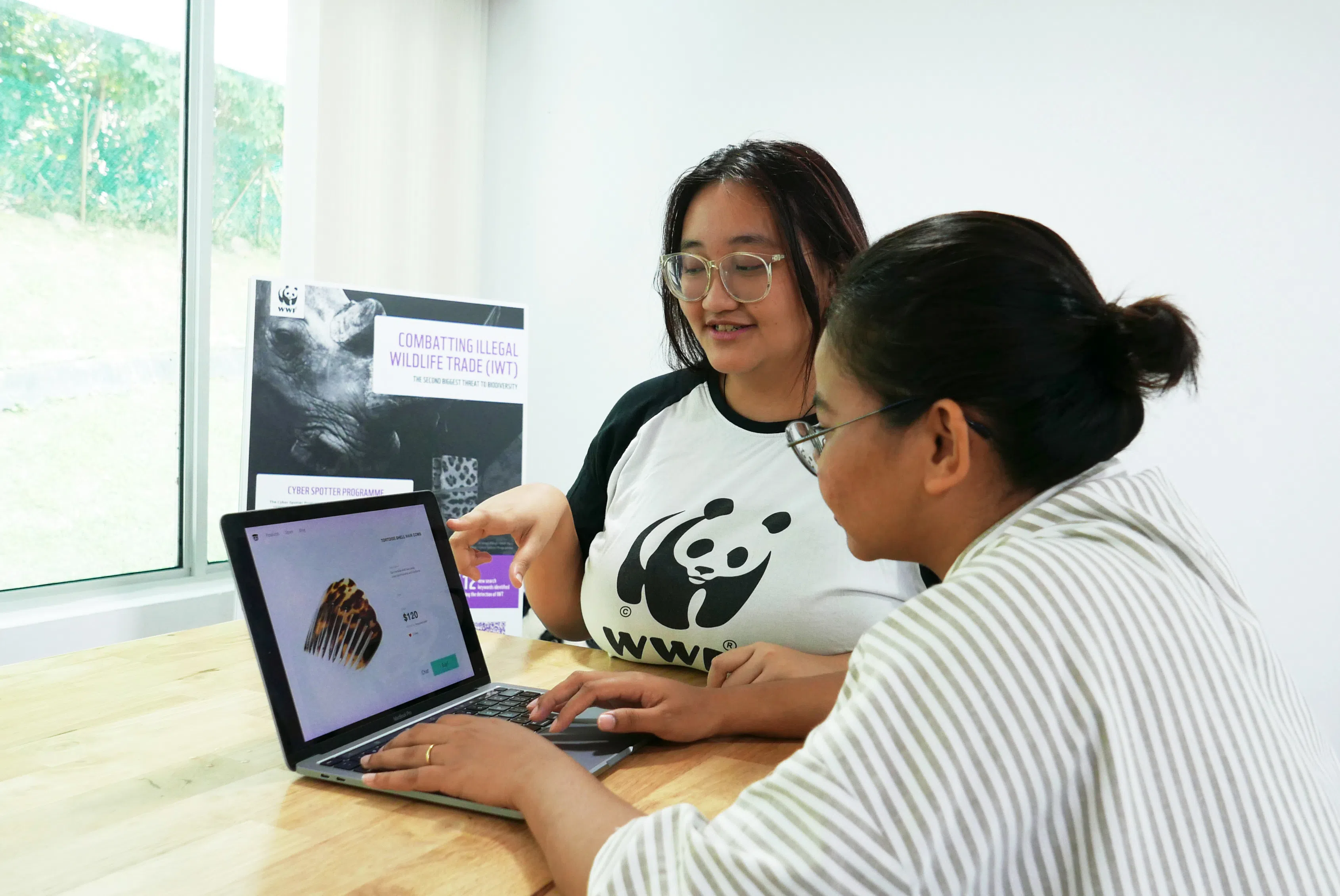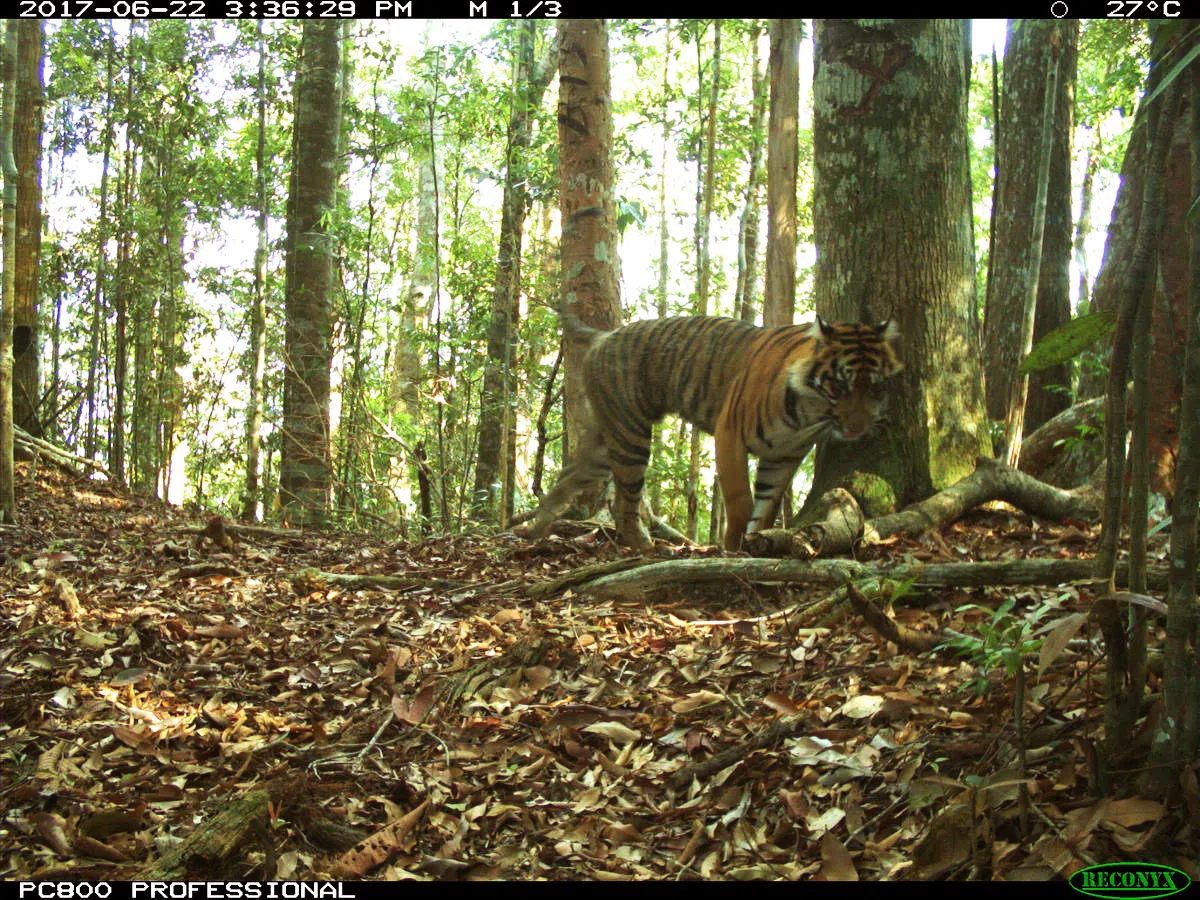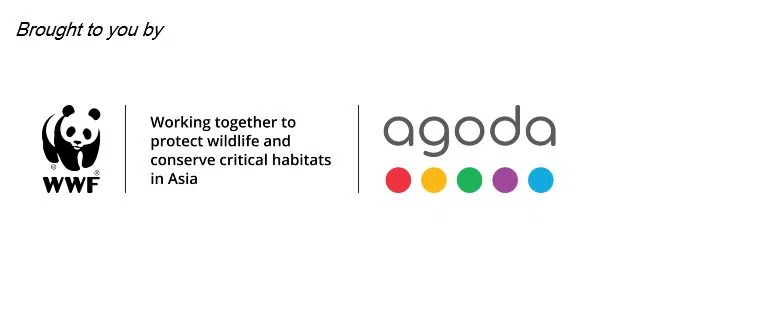Book a hotel, protect endangered species: How your holiday can now support conservation in South-east Asia
WWF’s innovative partnership with Agoda transforms travel into a powerful tool for ecosystem protection across the region’s richest natural habitats
Kenette Gelyn Cabotaje
IN SINGAPORE, a dedicated team of 156 volunteers trawl local e-commerce platforms for hours each month – not to hunt for bargains but to spot signs of illicit wildlife trade.
This group flagged thousands of listings across various species, leveraging skills acquired through the World Wide Fund for Nature (WWF) Singapore’s Cyber Spotter Programme. The initiative equips volunteers with the expertise to screen, identify and report potential illegal wildlife trade activities online, significantly boosting efforts to protect endangered species.
Illegal trade is the second leading cause of wildlife loss after deforestation worldwide. In 2023, the volunteers in Singapore have successfully identified over 6,000 illegal wildlife trade listings online.
This initiative is supported by the partnership between WWF and Agoda, known as the Eco Deals Programme. Through the programme, Agoda donates US$1 to WWF for every booking made with participating hotels. In just two years, the Eco Deals Programme has raised over US$390,000 (S$524,037), funding conservation efforts not only in Singapore but also in neighbouring countries such as Cambodia, Indonesia and Malaysia.
“WWF works at different levels to engage and partner with stakeholders,” says Vivek Kumar, chief executive officer of WWF-Singapore. “This can include governments, local communities, businesses and individual donors, to drive change through global policies, public and private investments and individual actions for a sustainable future.”
This has been the case in their successful partnership with Agoda. Enric Casals, associate vice president of Agoda, says the company’s support has enabled WWF to expand its efforts to protect wildlife and conserve critical habitats by contributing to several conservation programmes across South-east Asia, achieving notable milestones.
Navigate Asia in
a new global order
Get the insights delivered to your inbox.

Protecting South-east Asia’s biodiversity
Apart from cracking down on illegal wildlife trade, WWF is supporting conservation efforts in restoring nature, safeguarding wildlife habitats, protecting endangered species and using natural resources sustainably.
In Cambodia, these efforts focus on the Eastern Plain Landscape (EPL), which has seen significant biodiversity decline due to habitat destruction and poaching. To combat this, protected areas were established, including the Srepok Wildlife Sanctuary and the Phnom Prich Wildlife Sanctuary. Both shelter endangered species including Eld’s deer, Siamese crocodiles and the largest Asian elephant herd in the eastern part of Cambodia.
Agoda’s contribution to conservation efforts in the EPL in 2023 has enabled the training of over 80 government and community rangers, who conduct patrols of both sites. These patrols have proven effective, uncovering 13 illegal logging and poaching sites.
Over in Indonesia, the Sumatran rainforests are one of the most biodiverse regions on the planet. Here, WWF joined forces with the Frankfurt Zoological Society and The Orangutan Project to found PT Alam Bukit Tigapuluh (ABT), which manages two Ecosystem Restoration Concessions. PT ABT works with local and indigenous communities to build sustainable livelihoods without compromising environmental conservation values.
Agoda has supported PT ABT’s environmental, wildlife monitoring and habitat development activities through the deployment of 52 camera traps. Casals says: “We are proud that these camera traps help to monitor wildlife activities, identify wildlife corridors and address issues like poaching and wildlife conflicts.” In 2023, these efforts yielded a significant achievement: capturing a rare image of a Sumatran tiger and her two cubs.

In neighbouring Malaysia, WWF has taken a community-based approach, partnering with the indigenous Orang Asli community to patrol the forests. These patrols aim to remove snares, deter poachers and collect data on poaching activities. The initiative has grown significantly, with over 100 patrol team members now safeguarding the Belum-Temenggor Forest Complex in Perak.
Agoda’s support in 2023 has been instrumental in protecting one of the world’s oldest rainforests, enabling 20 teams to patrol for over 2,800 days and install close to 300 camera traps in over 140 locations. Kumar says: “These efforts have led to a second consecutive year with zero active snares recorded within the protected area and enabled the Royal Belum State Park to be the first site in South-east Asia to be awarded the prestigious Conservation Assured |Tiger Standards (CA|TS) accreditation.”

The importance of South-east Asia’s biodiversity cannot be overstated. “Essential ecosystems like forests, mangroves, coral reefs, wetlands and peatlands are key to maintaining ecological health, providing local communities with a variety of essential resources and benefits such as food, water and medicine,” notes Kumar.
But even beyond that, a 2022 study emphasised the region’s economic significance, estimating that its biodiversity contributes at least US$2.19 trillion annually to its economy. This underscores the need to protect these invaluable ecosystems.
Kumar adds: “The conservation impact we have achieved over the last two years showcases the tangible effect our collaboration has on our ecosystems and biodiversity. We hope this partnership not only encourages industry leaders within the hospitality field to join the Eco Deals Programme but also inspires other businesses to undertake similar initiatives.”
How travellers can do their part in conservation efforts
As part of the Eco Deals Programme, Agoda will donate US$1 for every booking at participating properties in popular tourist destinations.
Funds raised will go towards supporting WWF’s conservation efforts in eight countries with a minimum commitment of US$500,000 and a donation target of US$1,000,000. Individuals can benefit from a discount of up to 15 per cent while directly supporting WWF’s ongoing conservation projects by booking their next trip through Agoda’s Eco Deals Programme.

Decoding Asia newsletter: your guide to navigating Asia in a new global order. Sign up here to get Decoding Asia newsletter. Delivered to your inbox. Free.
Share with us your feedback on BT's products and services
